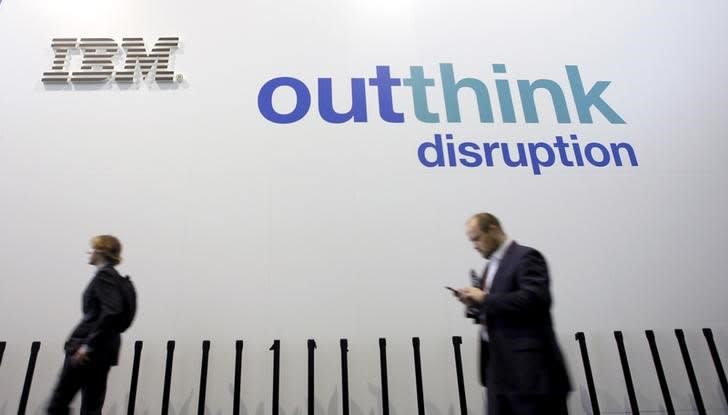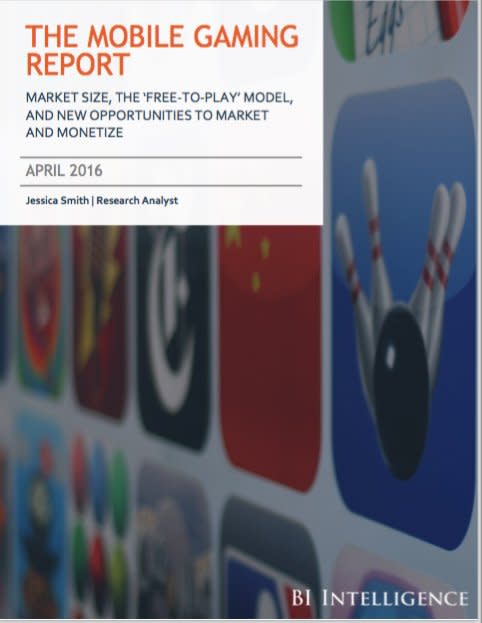IBM adds Apple's Swift to Cloud (IBM)
This story was delivered to BI Intelligence Apps and Platforms Briefing subscribers. To learn more and subscribe, please click here.

Thomson ReutersLast week, IBM announced the introduction of Apple’s Swift programming language to its cloud servers, which effectively means enterprise developers can use the language to build, create, and manage Swift applications on IBM’s Cloud. This could encourage enterprise developers to build apps using the language, giving Apple an opportunity to improve its enterprise presence.
The addition of Swift was made possible by Apple’s decision to open source its programming language in December last year. This gave Apple’s enterprise partners like IBM more options to better personalize consumer-facing applications and better leverage cloud computing in deployment.
The high-level programming language rose to prominence in the developer world due to its ability to make it easier for iOS app developers to design and create apps for iPhones, iPads, and other Apple devices.
The addition of Swift means that developers who already use Swift to build apps for Apple’s products can now use the same language they would for the server side apps that these programs depend on, according to Computerworld. Giving developers the option of building apps for iOS that work with Linux could encourage more businesses to buy Apple’s devices. The ability for businesses to more easily personalize their own enterprise apps could then help bolster Apple's hardware sales, particularly for its struggling tablet segment.
Over the past eight years, developers have flocked to create mobile games as smartphones became a mainstream consumer device. Technological evolutions including faster processors, larger screens, more input points, and better overall graphics capabilities, combined with dropping prices, brought the ability for gaming via smartphone to audiences larger than ever before.
While mobile gaming apps using an up-front paid downloading model, wherein consumers paid a typically nominal fee to download an app, flourished in the early days of mobile gaming, the deluge of apps led to a change in monetization strategy.
More apps started using the free-to-play (F2P) model, wherein a consumer can download an app for free, and is then later monetized either via in-app purchases or in-app advertising. Since that transition, most consumers have been conditioned to expect quality mobile gaming apps for little or no cost.
Jessica Smith, research analyst for BI Intelligence, Business Insider's premium research service, has compiled a detailed report on mobile gaming that examines how the mobile gaming market has been affected by the transition to F2P monetization.
It also takes a close look at how saturation in the mobile gaming category, combined with the standard F2P model, has led to numerous issues for developers, including spiking marketing costs, the premium on acquiring users who will spend heavily within a game (called whales), and the impact that it's having on mobile gamers who do not spend in-app. The report then identifies innovations in mobile app marketing and engagement that seek to alleviate the issues of F2P and inadequate monetization in the fact of mounting marketing costs.
Here are some key takeaways from the report:
The mobile gaming app market is so big it makes other app categories seem small by comparison. Mobile gaming apps accounted for 20% of active apps in Apple's App Store in March 2016, according to AppsFlyer. That’s more than double the second most popular category, business apps.
It's only going to keep growing as quality smartphones become more accessible and more consumers look to their smartphones for gaming. In the US alone, 180.4 million consumers will play games on their mobile phones in 2016, representing 56% of the population and a whopping 70% of all mobile phone users, according to estimates from eMarketer.
This quick growth is resulting in numerous growing pains. Saturation in the market has led to the dominance of the free-to-play (F2P) monetization model, which in turn has led to sky-high marketing costs.
As marketing costs for mobile gaming apps has skyrocketed, so has the tendency for apps to focus on the very small segment of players who spend money in-app. This has resulted in game mechanics that optimize the amount of money being spent by this small user group, which can often alienate the large swath of users who do not spend money in-app.
There are numerous new solutions coming to market that offer developers and publishing houses a diverse selection of monetization models which combine in-app purchases with other methods.
In full, the report:
Sizes up the current mobile gaming app market and its future growth trajectory.
Examines the role of free-to-play (F2P) games in the greater mobile gaming ecosystem.
Identifies the major threats and opportunities inherent in the current mobile gaming market and in peripheral markets such as marketing.
Explains the current monetization conundrum wherein the vast majority of revenue comes abysmally small segments of mobile gamers.
Presents new approaches and solutions that can help mobile gaming apps monetize without alienating swaths of mobile gamers.
To get your copy of this invaluable guide, choose one of these options:
Subscribe to an ALL-ACCESS Membership with BI Intelligence and gain immediate access to this report AND over 100 other expertly researched deep-dive reports, subscriptions to all of our daily newsletters, and much more. >> START A MEMBERSHIP
Purchase the report and download it immediately from our research store. >> BUY THE REPORT
The choice is yours. But however you decide to acquire this report, you’ve given yourself a powerful advantage in your understanding of the world of mobile gaming.
See Also:

 Yahoo News
Yahoo News 


